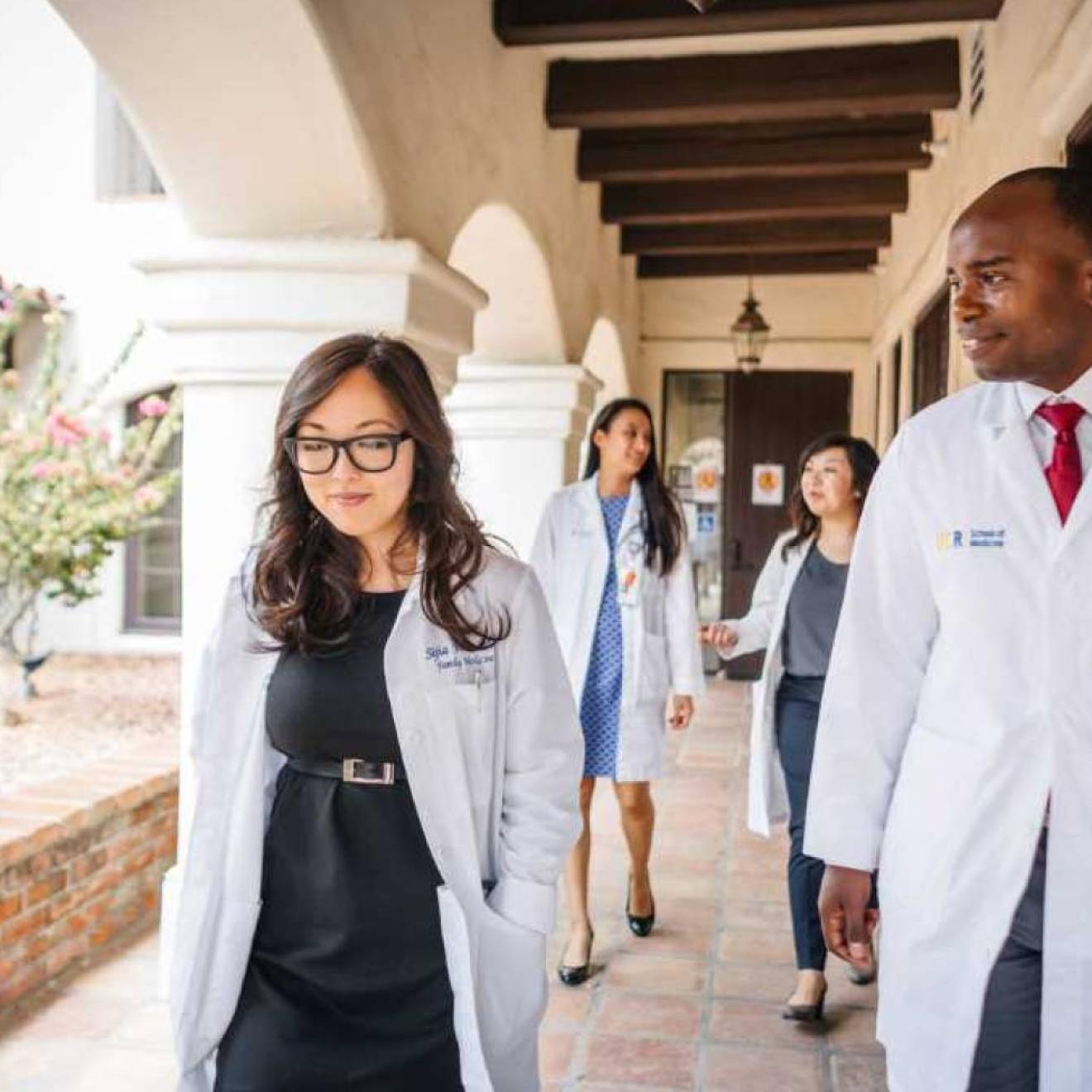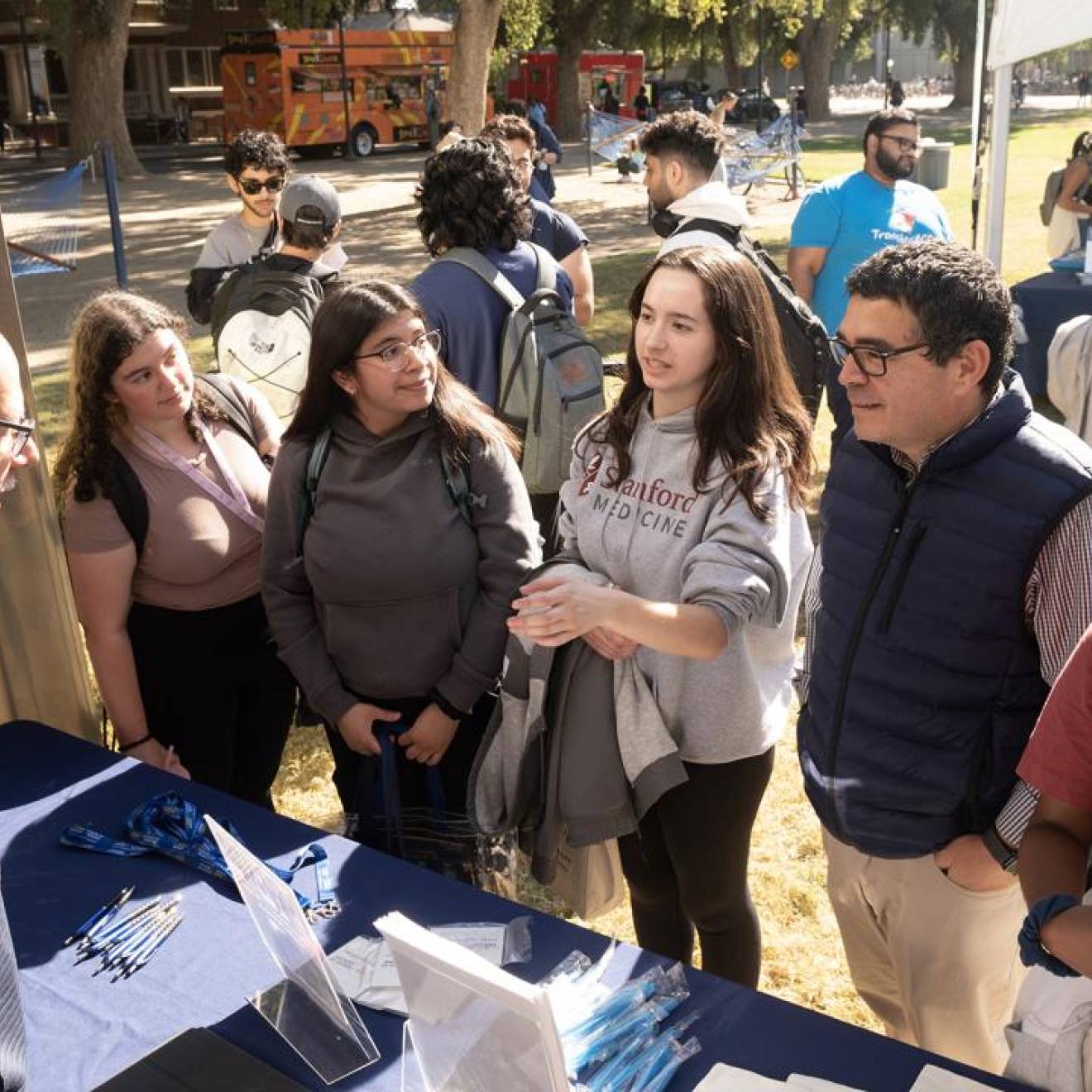Madeline Adamo, UCLA
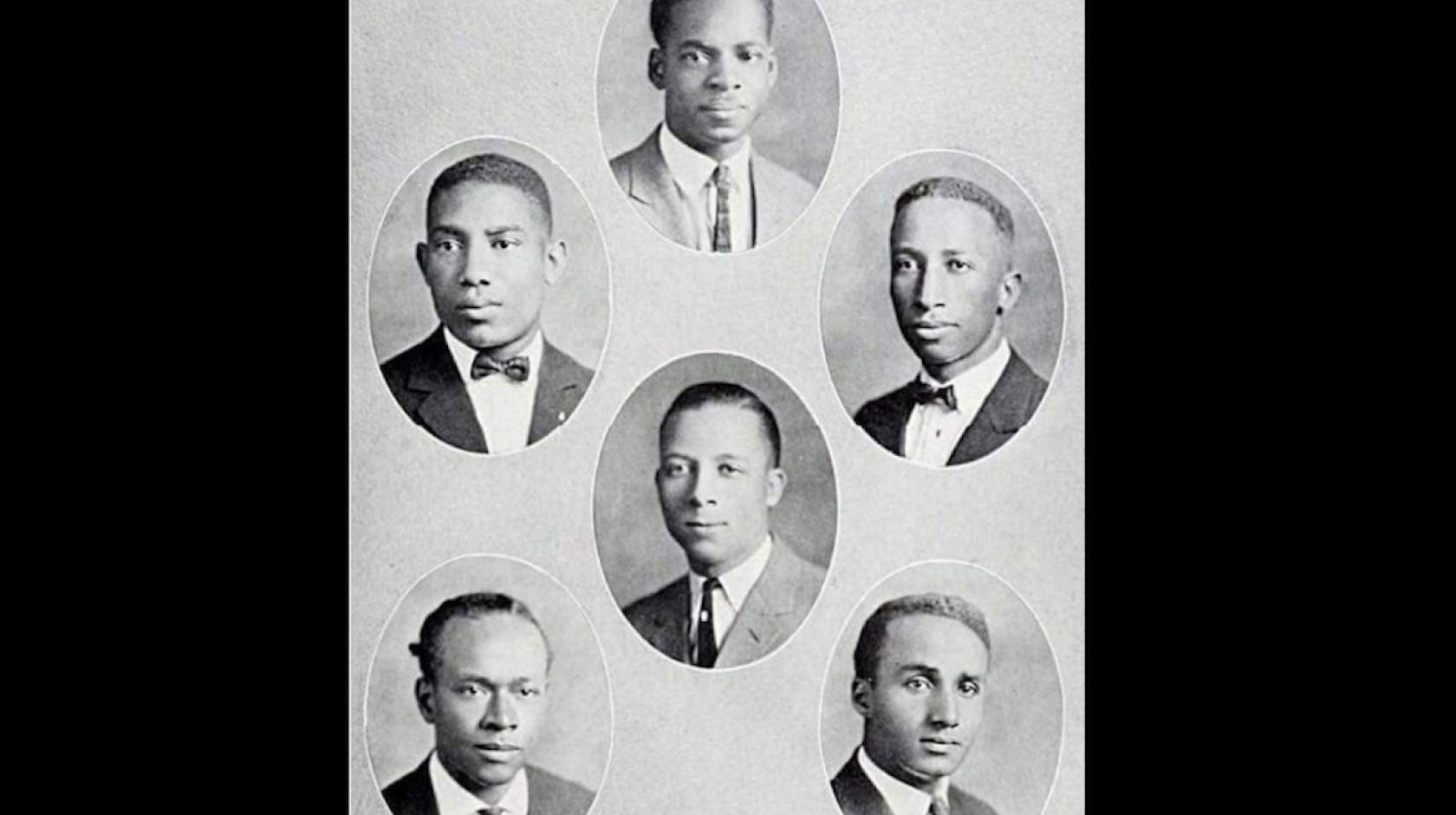
In 1923, UCLA, then known as the Southern Branch of the University of California, was home to just a few thousand students and was still two years away from granting its first degrees. Greek life, however, was already in swing, led by African American students.
In January of that year, a group of Black women had formed UCLA’s first-ever Greek lettered organization, Pi chapter of Delta Sigma Theta Sorority. And in April, a Black fraternity, the Upsilon chapter of Kappa Alpha Psi, opened its doors. Both were branches of national Black Greek-letter bodies formed early in the 20th century to provide a haven and community for African American students, who couldn’t join other fraternities or sororities and were often confronted with racism and marginalization on college campuses.
Over the ensuing 100 years, the Pi and Upsilon chapters would become valuable sources of support and advocacy for Black students at UCLA, foster a rich tradition of community service and social activism on campus, in Los Angeles and beyond, and produce some of the nation’s most respected names in government, business, sports, law and the arts.
In recognition of those contributions and the impact both organizations have had on Black life on UCLA, the university is honoring each this centennial year with permanent plaques on campus. The unveiling of the fraternity’s marker took place at an April 24 ceremony outside Kerckhoff Hall, where speakers will include Executive Vice Chancellor and Provost Darnell Hunt and Los Angeles Mayor Karen Bass.
The sorority’s dedication unveiling will occur later in the year.
Upsilon chapter of Kappa Alpha Psi: Rich past, bright future
For the Upsilon chapter, which today includes fraternity members not only from UCLA but Cal State Northridge and Cal State Los Angeles, the UCLA unveiling is the centerpiece of an event-filled six-day reunion and celebration beginning April 20. Other highlights include a centennial luncheon at the Beverly Hilton Hotel; where speakers will include Lt. Gov. Mandela Barnes of Wisconsin, and UCLA Chancellor Gene Block; and a fellowship banquet at the UCLA Meyer and Renee Luskin Conference Center.
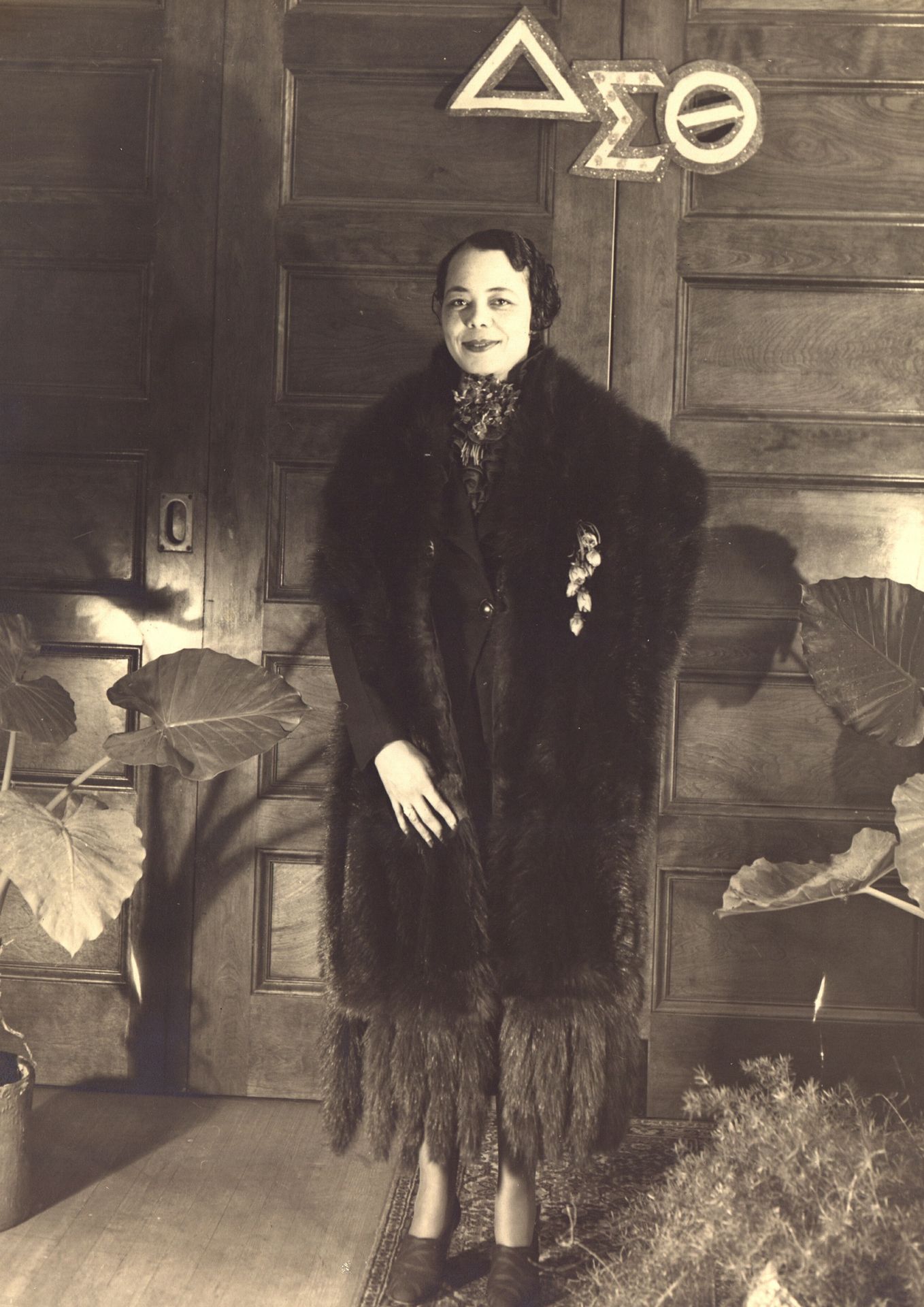
A woman in a fur coat in the Delta Sigma Theta house.
The centennial is an opportunity for current and former chapter members, friends and family, students and prospective students, and local and university officials to not only honor the chapter’s legacy but to look ahead as well, said Kevin Kinsey, chair of the centennial celebration and the former national director of organizational effectiveness for Kappa Alpha Psi.
“We are coming back to celebrate 100 years of existence at this prestigious university,” Kinsey said. “We’re looking to our future, the future of UCLA, the future of Kappa Alpha Psi and the future of an African American presence on campus, as well as the institutionalized sanction of bringing about a number of new leaders who will present themselves as accomplished achievers in the future.”
If the past is an indication, that future should be bright. The Upsilon chapter’s long line of UCLA luminaries has included tennis icon and civil rights activist Arthur Ashe, Los Angeles Mayor Tom Bradley, Olympic medalist and chemist Jimmy LuValle and Winston Doby, who served for two decades as UCLA’s vice chancellor for student affairs. And many of the new leaders are products of the chapter’s wide-ranging community outreach and service efforts. Current Upsilon chapter president Joshua Hudson, a CSUN student, for instance, has been involved with the fraternity since the eighth grade — first as a participant in the Kappa League, a mentorship program for Black male students in grades 6–12, and later as a mentor himself.
Through programs like the Kappa League, the Kappa Camp summer enrichment program and the national Guide Right initiative, Upsilon chapter members and alumni provide younger Black students throughout Los Angeles with personal and academic guidance, development opportunities, college preparation and even financial literacy training. That service also extends to the broader community, where members have organized food and clothing drives, assisted the homeless in downtown’s Skid Row and organized voter registration campaigns.
Having the campus acknowledge those efforts and recognize the fraternity’s 100 years of contributions to Black life on campus and in the community is an important step in communicating to Black students that they belong at and are valued by UCLA, said Kevin Harbour, former president of the UCLA Black Alumni Association and executive vice chair of the Upsilon chapter’s centennial celebration — which, he noted, is entirely self-funded.
“I think it’s a sign of UCLA’s continued commitment to diversity, equity and inclusion,” he said. “And by not having to ask for anything, we are bringing monetary value to the school and also making sure that we bring the best and brightest minds to campus.”
Pi Chapter of Delta Sigma Theta: 100 years of sisterhood and activism
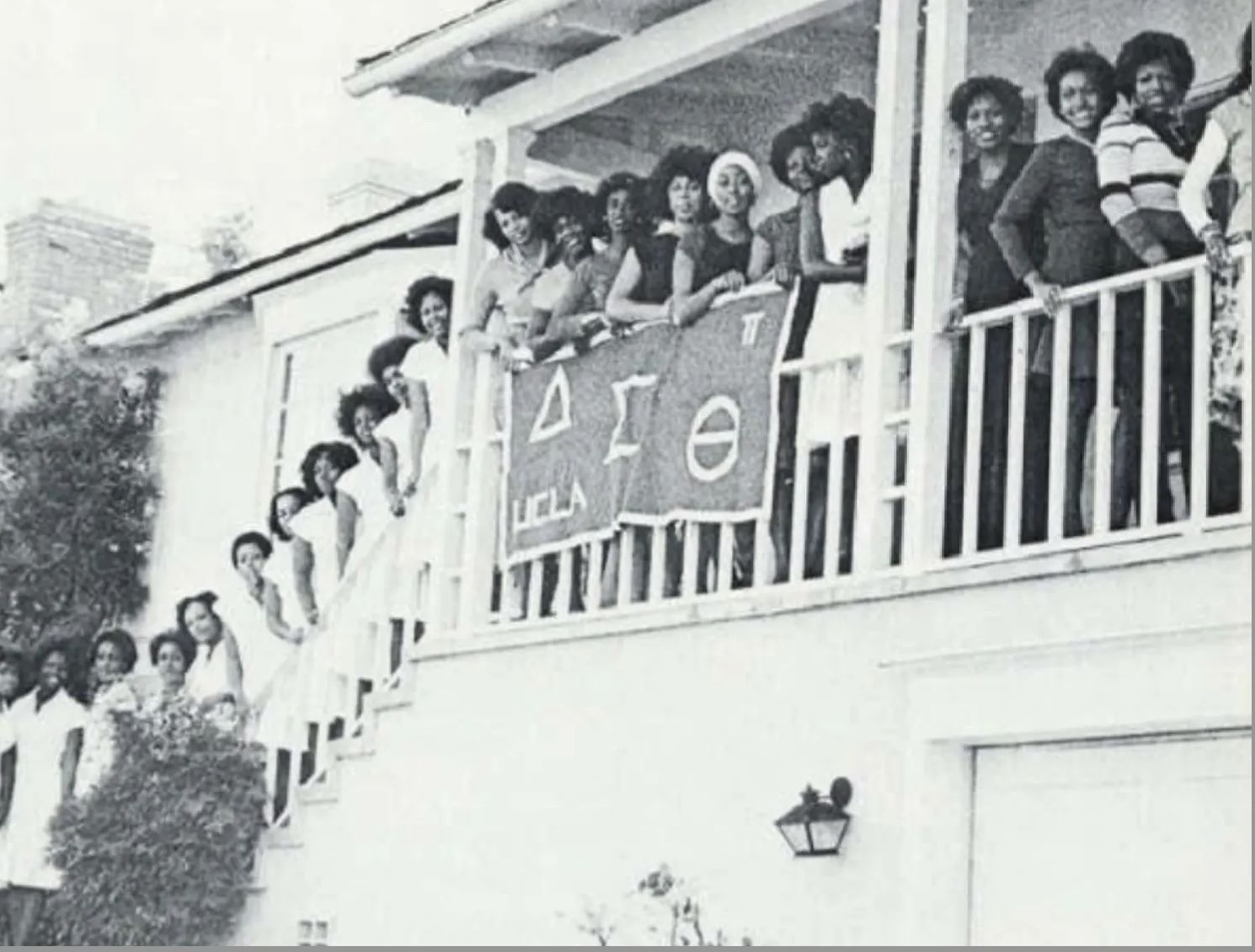
In January, the Pi chapter hosted its own five-day reunion and centennial celebration, which featured a dedication ceremony and chapter gala, as well as an exclusive screening of “Birthing Justice,” a documentary directed and co-written by triple Bruin and Pi chapter alumna Monique Matthews. The sorority complemented the film, which explores systemic racism as it relates to disparities in maternal care for Black women and infants, with a diaper drive to assist families throughout Los Angeles.
Pi chapter president Rayven Hickman, a fourth-year UCLA psychobiology student, said that beyond the diaper drive, the highlight of that week was having the opportunity to see and meet sorority members who had graduated from UCLA as far back 1951 — and to have them together in the same room with members who had just joined the sorority in spring 2022.
Making those connections with past generations, Hickman said, allows current members to better understand and connect their own experiences, challenges and efforts to a longer legacy and to reflect on the heritage that began with the five remarkable women who chartered the chapter at UCLA, including Miriam Matthews, the chapter’s first president, a civil rights activist, historian and Los Angeles’ first Black librarian.
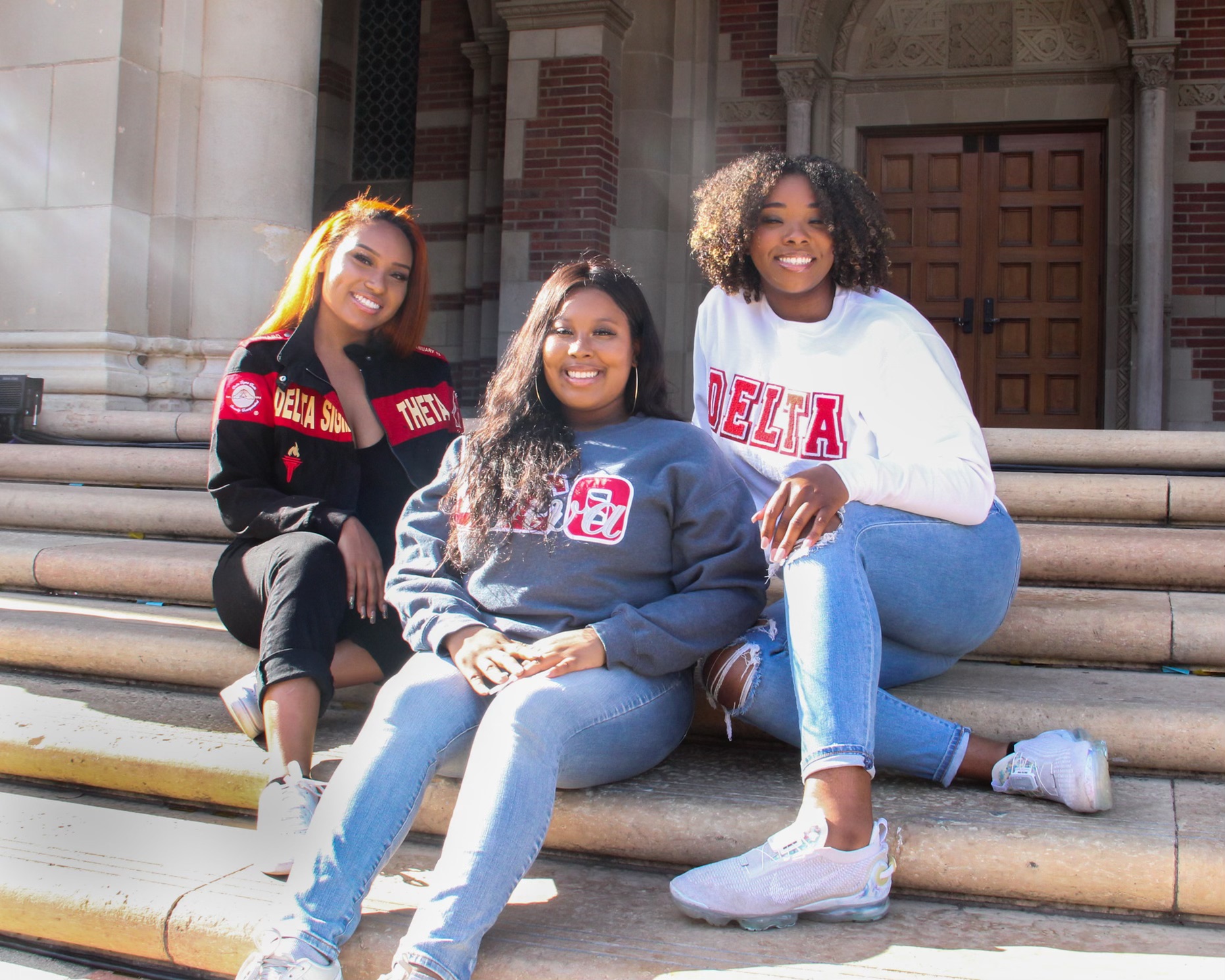
Throughout the years, the chapter has continued to embody that heritage of activism and service and to serve as a catalyst for change, transforming the lives not only of its members but of many in broader community. Like their counterparts in the Upsilon chapter, the women of the Pi chapter have tutored and mentored students throughout Los Angeles, organized food drives, engaged young Black women in professional development opportunities, and helped to lead efforts on behalf of women’s rights, civil rights and social justice.
Just last week, sorority members attended the unveiling of an official Pi chapter crest at UCLA’s Black Bruin Resource Center with members of the National Pan-Hellenic Council, the governing body of the nine Black Greek-letter member organizations in the U.S. — known as the “Divine Nine” — that have historically served Black students. Today, seven of those nine organizations have chapters at UCLA.
“It’s such an honor to be the chapter president during this centennial year,” Hickman said. “It’s amazing to celebrate together and also to receive some recognition from the university as the first Greek-letter organization on the UCLA campus.”
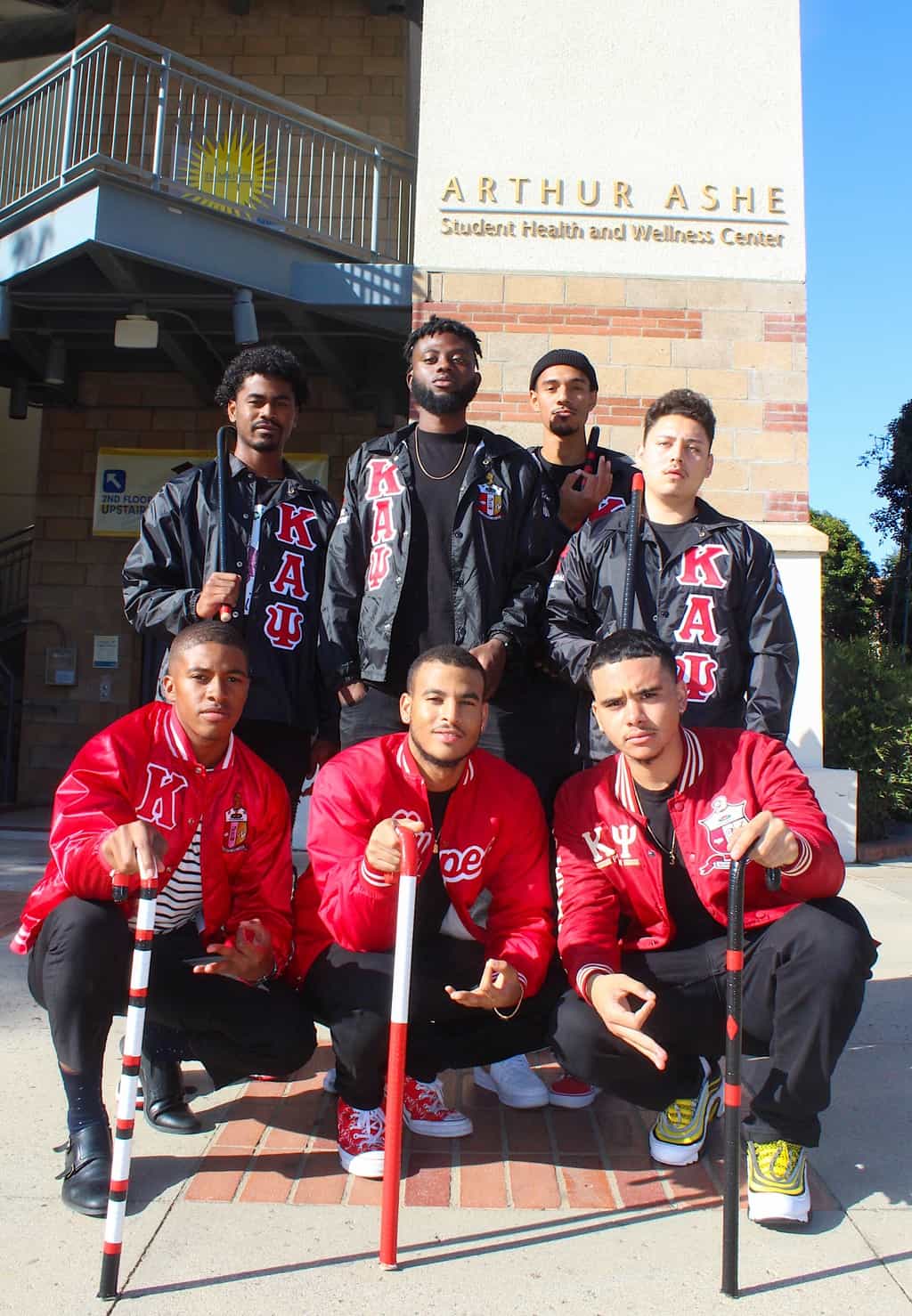
Members of Kappa Alpha Psi’s Upsilon chapter outside the Ashe Center on the UCLA campus.
